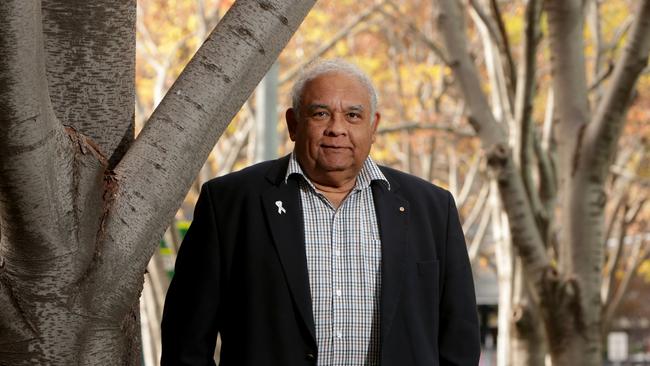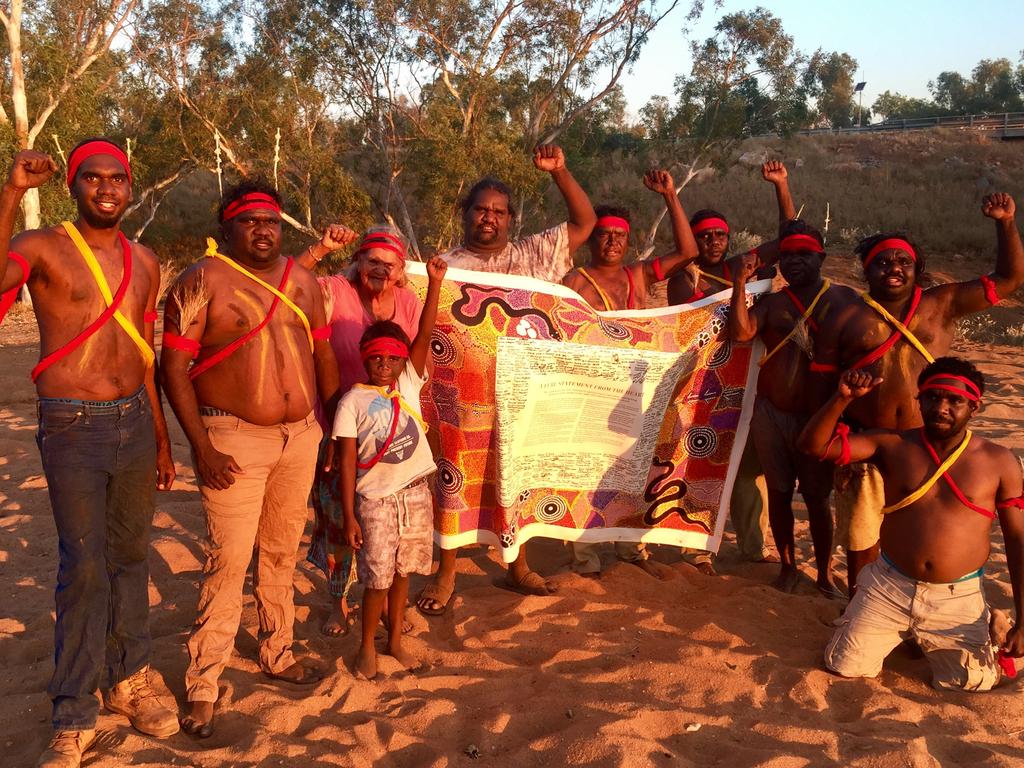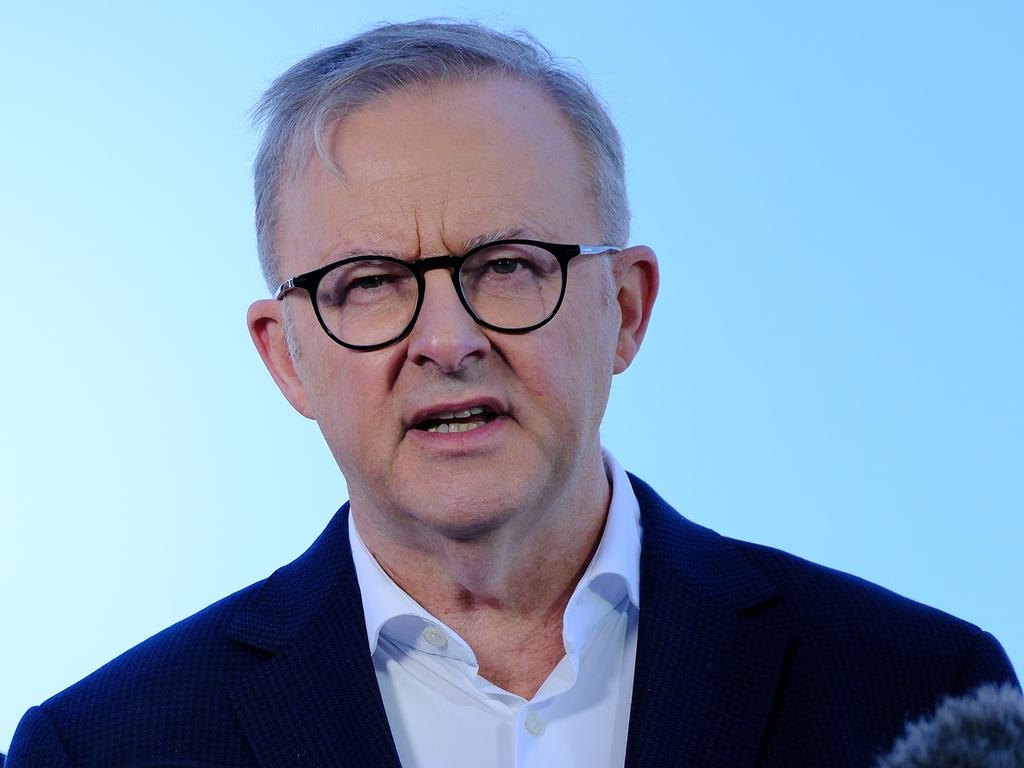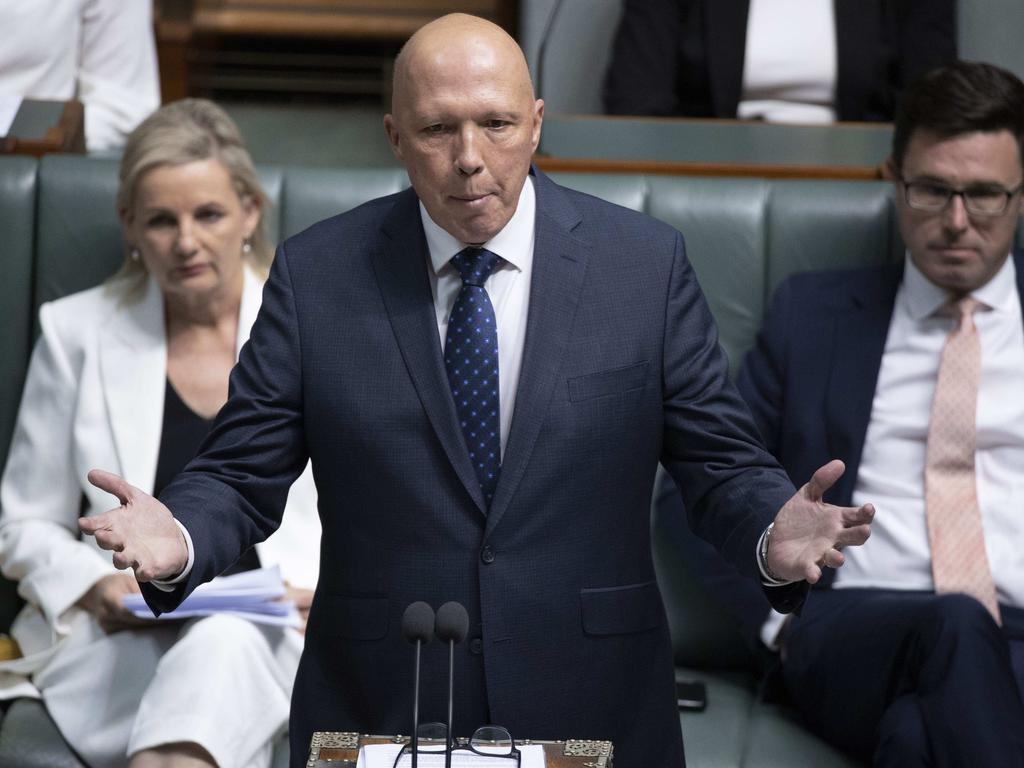Indigenous voice member criteria ‘a non-issue’, says Tom Calma
Tom Calma has rejected Peter Dutton’s questioning over whether a member’s Aboriginality will meet a particular definition, saying there are clear eligibility criteria.

Tom Calma, a key adviser to Labor on the Indigenous voice to parliament, has rejected Peter Dutton’s questioning over whether a member’s Aboriginality will meet a particular definition, saying there are clear eligibility criteria for the government to follow.
Constitutional lawyer and Uluru Dialogue member Eddie Synot also said the structure of the voice would ensure only those Indigenous leaders with deep ties to their communities would be appointed to the advisory body.
The push back against the Liberal Party’s attack over the lack of available detail on the voice came as opposition finance spokeswoman Jane Hume declared Labor was “ducking questions” about the mechanics of the referendum, due in the second half of the year. Senator Hume, also spokeswoman on matters of state, said Labor was “setting this referendum up to fail” by intentionally keeping voters uninformed.
A day after the Opposition Leader laid out 15 questions about the voice to Anthony Albanese, Senator Hume said the government could not say why it had decided not to provide official information on the referendum in a pamphlet. She said there were no answers to why Labor had chosen not to create an official Yes and No campaign, which “would allow for effective regulation of donations and foreign influence”.
“The AEC say that they estimate that 40 per cent of people use their household guide that they mail out at each election and each referendum as their primary source of information about the electoral process. Knowing that, how can the government say the Yes/No pamphlet is no longer necessary?” Senator Hume said.
In Mr Dutton’s letter to the Prime Minister, he asked who would be eligible to serve on the body and if the government would “clarify the definition of Aboriginality to determine who can serve”.
Professor Calma, who with Indigenous leader Marcia Langton co-wrote the final voice co-design process report to the Morrison government, said Mr Dutton’s question was a “non-issue” because it was already defined by the federal government and addressed in its 270-page document.
The Calma-Langton report proposes a two-step eligibility process, where a person appointed to local and regional voices must be: “An Aboriginal and/or Torres Strait Islander person; recognised/accepted by community as an Aboriginal and/or Torres Strait Islander person; a resident of the region where they are seeking nomination; and a ‘fit and proper’ person.”
Members of the local and regional voices in each state would then nominate to be appointed to the national voice a man and woman who would have to meet a second eligibility criteria.
“There are no doubt some people who want to get a great deal of detail. For what reason I’m not really sure,” said Professor Calma, a member of the government’s First Nations referendum working group.
“They vote on the principle of giving Aboriginal and Torres Strait Islander people a voice and leave it to the parliament, the elected body, to determine the composition and the funding. What the previous government and current government have said is the final report of the co-design group will form the basis of the voice going forward. All the answers are there.”
Mr Synot said the “tripartite test” from the Mabo decision – which requires the demonstration of biological descent together with mutual recognition of the person’s membership of the Indigenous people and those people’s elders – had found acceptance in the courts.
The Indigenous community took the matter of determining Aboriginality seriously, he said, and was invested in dealing with those who tried to game the system.
The Prime Minister accused Mr Dutton of not being “fair dinkum” over the voice, and insisted there was already “an enormous amount of detail out there” on how it would operate.
In his first broadcast comments since the Opposition Leader wrote to him on Sunday, Mr Albanese told the ABC’s 7.30 program: “To me, that isn’t fair dinkum. If you’re fair dinkum, sit down, work issues through, come up with a constructive proposal.
“What we’re doing here is trying to reach out and get as much support as possible. We want this to be an inclusive process. People can either look for a way in which this can be given support or they can look for reasons to disagree and look for division. I want to look for national unity.”







To join the conversation, please log in. Don't have an account? Register
Join the conversation, you are commenting as Logout